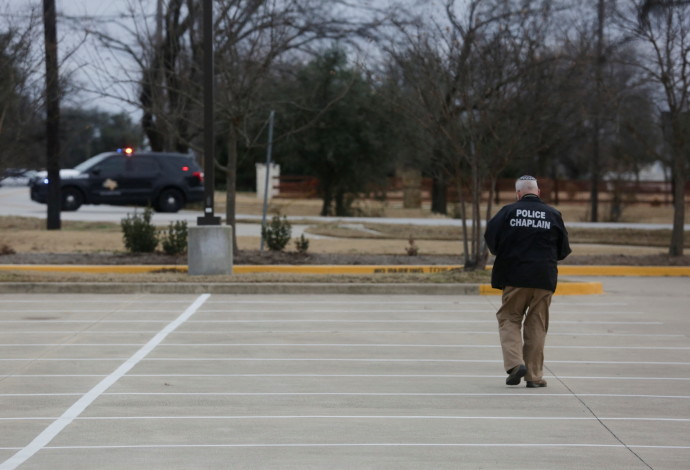Senate Majority Leader Chuck Schumer said on Wednesday that he will keep pushing to increase the funding of the Nonprofit Security Grants Program to $360 million annually.
The NSGP has been a major agenda item for many Jewish organizations. Since the terrorist attack on Congregation Beth Israel in Texas, Jewish organizations have urged Congress to double its budget. The program permits houses of worship and other threatened nonprofits to apply for grants of up to $150,000 each.
The money can be used for security measures such as fences, cameras, more secure doors and hiring of personnel. The bill would establish a dedicated NSGP office at the Department of Homeland Security, provide support mechanisms to eligible nonprofit organizations, and simplify and streamline the application process. It would also increase congressional oversight of the program.
“We must make sure we do everything in our power to fight antisemitism here at home,” Schumer said in a video message to the Jewish Federations of North America (JFNA) Washington Conference. “That’s why I’m working alongside JFNA to secure resources for religious institutions to protect themselves.”
He said that recently, he joined with Jewish leaders, Christian leaders, Muslim and Sikh leaders to call for more funding for the nonprofit security grant program, “which helps synagogues, shuls, JCCs, and other Jewish institutions to invest in their physical security.”

“I worked hard to get the program started,” he continued. “And last year I was able to double the allocation for the NSGP from 90 million to 180 million. And the most recent omnibus appropriation that passed a few weeks ago, brought the number up to 250 million. And I’m equally proud that the president’s budget just came out and [included] my call for 360 million for the NSGP next fiscal year.
Together, we will continue to push for that 360 million. We all know how greatly this funding is needed with antisemitism, unfortunately, on the rise today.”
He went on to say that places of worship should be places of sanctuary and safety.
“When antisemitism strikes, I feel it’s my duty to respond,” said Schumer. “So I’ll keep fighting to increase the allocation for this important program, which I developed [with JFNA]. We have to make sure that every synagogue, every shul, every Jewish institution is safe. I am the first Jewish Senate majority leader, and I’m the highest ranking Jewish elected official ever in America. And I will always take seriously my responsibility to the community to fight antisemitism.”
ALSO ON TUESDAY, Republican Senator Rob Portman of Ohio, Ranking Member of the Senate Homeland Security and Governmental Affairs Committee, sent a letter to the Senate Appropriations Committee requesting that the NSGP “be adequately funded to meet the needs of at-risk organizations this fiscal year.”
He noted that the funding provided by the program helped institutions install security measures such as surveillance cameras, which allowed law enforcement to better respond to a developing situation.
These examples “illustrate the critical security upgrades being provided to meet the persistent threat of lethal violence and acts of terror against faith and community-based institutions in the United States, which have been threatened, burned, bombed, and hit with gunfire,” he wrote.
“For these reasons, I respectfully encourage you to appropriately fund the NSGP, so our nation can do all that it can to protect at-risk faith and community-based nonprofits from increasing extremist and hate-motivated threats,” wrote Portman.
